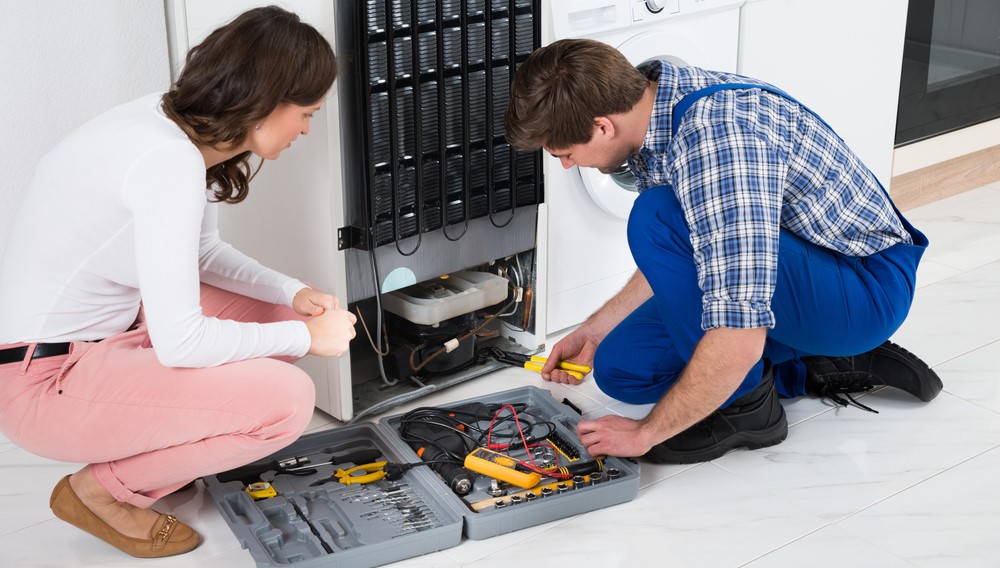
How to Diagnose Common Refrigerator Problems
Refrigerators are indispensable in modern households, keeping our food fresh and safe. However, like any appliance, they can develop problems over time. Diagnosing these issues early can save you from spoiled food and expensive repairs. Here’s a comprehensive guide to diagnosing common refrigerator problems.
Refrigerator Not Cooling
One of the most common issues is a refrigerator that isn’t cooling properly. Here’s how to diagnose this problem:
- Check the Thermostat: Ensure the thermostat is set to the correct temperature. For refrigerators, it should be around 37°F (3°C), and for freezers, it should be 0°F (-18°C).
- Inspect the Condenser Coils: Dirty condenser coils can prevent the refrigerator from cooling effectively. Locate the coils, usually at the back or underneath the fridge, and clean them with a coil brush or vacuum.
- Examine the Evaporator Fan: The evaporator fan circulates air throughout the refrigerator. If it’s not working, the fridge won’t cool properly. Listen for the fan; if you don’t hear it, it might need to be replaced.
- Check the Door Seals: Ensure the door seals (gaskets) are not cracked or loose. Faulty seals allow warm air to enter, making the refrigerator work harder to cool.
- Evaluate the Compressor: The compressor is the heart of the cooling system. If it’s not running or makes unusual noises, it could be the culprit. This is a more complex issue that might require professional assistance.
Refrigerator Making Strange Noises
Unusual noises can be unsettling, but they often point to specific issues.
- Rattling or Banging: This could indicate loose parts or debris in the condenser or evaporator fan blades. Check these areas and tighten any loose components.
- Buzzing: A buzzing sound often comes from the ice maker when it’s not connected to a water supply. Ensure the water line is properly connected and the water supply is turned on.
- Clicking: Frequent clicking can be a sign of a failing start relay on the compressor. This part helps the compressor start and run efficiently. If it’s faulty, it may need to be replaced.
- Hissing or Dripping: These noises are usually normal, indicating the defrost cycle is running. However, if they are excessive, check for leaks or clogged defrost drains.
Refrigerator Leaking Water
Water leakage is another common issue that can have several causes.
- Blocked Defrost Drain: The defrost drain can become clogged with food particles or ice. Locate the drain hole (usually at the back of the freezer) and clear any blockages using a pipe cleaner or warm water.
- Damaged Water Line: If your refrigerator has a water dispenser or ice maker, inspect the water lines for cracks or leaks. Replace any damaged hoses.
- Check the Drain Pan: The drain pan collects water during the defrost cycle. If it’s cracked or not positioned correctly, it can cause leaks. Ensure the pan is in place and replace it if necessary.
Ice Maker Not Working
An ice maker that’s not producing ice can be frustrating. Here’s what to check:
- Water Supply: Make sure the water supply line is connected and the valve is open. Also, check for any kinks in the hose.
- Ice Maker Switch: Some models have a switch or arm that can turn the ice maker on and off. Ensure it’s in the “on” position.
- Check the Water Inlet Valve: The water inlet valve controls the flow of water into the ice maker. If it’s defective, it won’t fill the ice tray. Test the valve with a multimeter for continuity and replace it if necessary.
- Temperature: Ensure the freezer temperature is set correctly (0°F or -18°C) as the ice maker won’t work if it’s too warm.
Refrigerator Runs Constantly
A refrigerator that runs continuously can lead to higher energy bills and indicate underlying issues.
- Dirty Condenser Coils: As mentioned earlier, dirty coils can cause the refrigerator to work harder. Clean them regularly.
- Faulty Door Gaskets: If the door seals are damaged, warm air enters, causing the fridge to run constantly. Replace faulty gaskets.
- Check the Defrost Timer: The defrost timer turns on the defrost heater several times a day. If it’s not working, the coils can become iced over, forcing the fridge to run constantly. Test and replace the defrost timer if needed.
- Evaluate the Temperature Control Thermostat: This thermostat directs voltage to the compressor and fans. If it’s defective, the fridge may run too much. Test it for continuity and replace it if necessary.
Frost Buildup in the Freezer
Excessive frost can affect the efficiency of your refrigerator and reduce storage space.
- Faulty Door Gasket: As with cooling issues, a faulty door gasket can let in moisture, leading to frost buildup. Replace any damaged gaskets.
- Defrost System Problems: The defrost heater, defrost thermostat, or defrost timer may be malfunctioning, causing frost to accumulate. Check these components for continuity and replace any faulty parts.
- Improper Storage: Ensure that food items are not blocking the vents. Proper air circulation is essential to prevent frost buildup.
Conclusion
Diagnosing common refrigerator problems can often be done with a bit of knowledge and some basic tools. Regular maintenance, such as cleaning condenser coils and checking door seals, can prevent many issues. However, some problems, particularly those involving the compressor or electrical components, may require professional repair. By staying vigilant and addressing issues early, you can keep your refrigerator running efficiently and extend its lifespan. Is your refrigerator acting up? Don’t wait until it’s too late! Contact us today for fast and reliable refrigerator repair services!
Frequently Asked Questions
How soon can you repair my refrigerator?
We offer same-day or next-day service for most refrigerator repairs. Contact us to schedule an appointment.
What brands do you repair?
We repair all major refrigerator brands, including Samsung, LG, Whirlpool, GE, and more.
Do you provide a warranty on your repairs?
Yes, we offer a warranty on all parts and labor for our refrigerator repair services. Contact us for specific details.
What are the common signs that my refrigerator needs repair?
Common signs include not cooling, leaking water, strange noises, and excessive frost buildup. If you notice any of these issues, call us immediately.
How much will it cost to repair my refrigerator?
The cost varies depending on the issue and parts needed. We provide a detailed estimate after diagnosing the problem. Contact us for a consultation.
